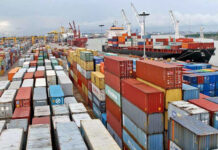The Centre for Policy Dialogue (CPD), a non-governmental research organisation, has suggested creating an integrated industrial safety framework to avoid the risk of accidents related to chemical use and supply in industries in the country. The organisation says there are weaknesses at almost every level of the supply chain for hazardous chemicals. For this, if the concerned authorities jointly ensure safety through a specific authority, the risk of accidents will be reduced.
This was suggested by CPD in a media briefing organised on chemical accidents and industrial safety. CPD Research Director Khandkar Golam Moazzem presented various information and advice on the recent accident and industrial safety of Chittagong’s Inland Container Depot (ICD).
In the original article, Khandkar Golam Moazzem said, ‘Chemical accidents have been increasing in the country for a decade. But we don’t have the kind of safety infrastructure we need to deal with chemical accidents. The security infrastructure at different stages from chemical production to import-export is also inadequate and incomplete. As a result, both industrial risk and mortality risk are increasing.’
The briefing was organised by CPD and UK-based Christian Aid Bangladesh. Fahmida Khatun, Executive Director of CPD, conducted this program at Dhanmondi, Dhaka on Wednesday (20 July). Christian Aid Bangladesh Program Manager Nuzhat Zebin and CPD Research intern Zebunnesa Zeba were also present.
In the event, Khandkar Golam Moazzem said that currently, 251 industries are producing chemicals in the country. There are about 33 thousand workers in these factories. Apart from this, 149 companies are manufacturing medicines. Chemicals are also used a lot in this sector. But other than large-scale institutions, other institutions are not under regular surveillance. As a result, the risk of accidents is very high.
Golam Moazzem said that there are security weaknesses not only in the production stage but also in the entire supply chain and supply system of chemicals including import and export. He said that chemical accidents are increasing due to the weakness of security.
After a fire broke out in a container at the Inland Container Depot (ICD) of Sitakunda, Chattogram on 4 June, it spread to the hydrogen peroxide stored in the surrounding sheds and containers. Then there was a loud explosion. 49 people were killed and more than 150 people were injured.
Golam Moazzem said that this accident exposed a major industrial safety weakness. This is not just about one container, but there are weaknesses at every stage from production to marketing of hazardous chemicals.
Golam Moazzem, who visited the depot after the accident, said that while there was permission to store normal products, there was no permission to store chemicals. And there was no necessary equipment to deal with chemical accidents.
Christian Aid Bangladesh Program Manager Nuzhat Zebin urged to question foreign buyers about the chemical accident. She said that buyers in the ready-made garments sector buy products after knowing about the security of the entire supply chain. But there is a need to question whether buyers of chemical products do it correctly.
In a media briefing, CPD said that the production, import, and export of dangerous chemicals are increasing in the country. For example, in 2010, hydrogen peroxide worth USD 2 lacs and 66 thousand US dollars were exported from the country. In the span of a decade, exports increased to USD 1 crore 61 lacs, and 10 thousand in 2021. Exports of another chemical, urea, have now crossed 30 crores and 29 lac dollars.




